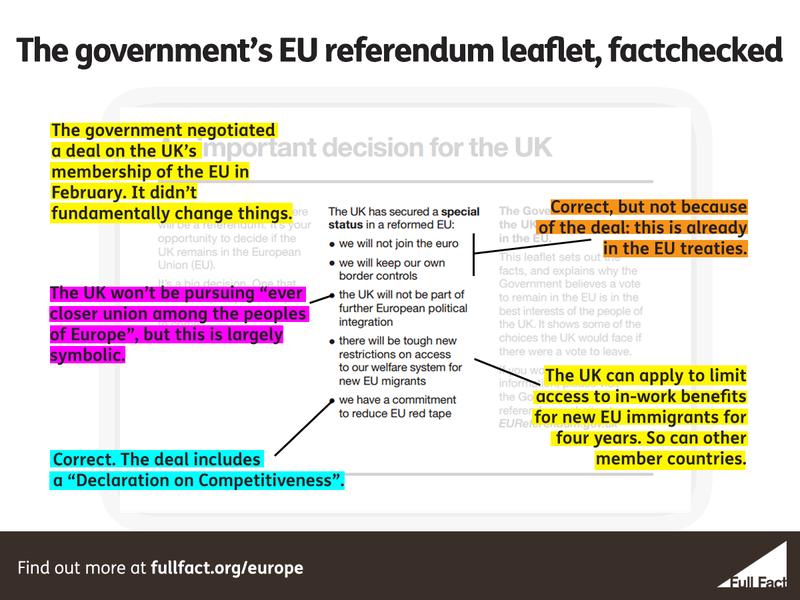The government's EU leaflet: "special status"

“The UK has secured a special status in a reformed EU:
- We will not join the euro
- We will keep our own border controls
- The UK will not be part of further European political integration
- There will be tough new restrictions on access to our welfare system for new EU migrants
- We have a commitment to reduce EU red tape”
The UK does have special arrangements in some of these areas, although not all of them came about due to the EU deal negotiated by David Cameron earlier this year.
Of these five examples, two aren’t from that deal, one doesn’t make very much difference, and two aren’t specific to the UK.
Join 72,953 people who trust us to check the facts
Sign up to get weekly updates on politics, immigration, health and more.
Subscribe to weekly email newsletters from Full Fact for updates on politics, immigration, health and more. Our fact checks are free to read but not to produce, so you will also get occasional emails about fundraising and other ways you can help. You can unsubscribe at any time. For more information about how we use your data see our Privacy Policy.
It’s correct that the UK doesn’t have to join the euro. This is already in the EU treaties. The same goes for keeping UK border checks.
The deal negotiated with other EU leaders in February did take in the other issues mentioned, although none of the legal experts who analysed the deal for us suggested that it amounts to a fundamental change in the UK-EU relationship.
The deal would exempt the UK from aspiring to “an ever closer union among the peoples of Europe”. This phrase has a symbolic political impact, but has little or no legal effect. Saying that it no longer applies to the UK doesn’t change anything about how the EU works, or the powers it has.
On benefits for new EU migrants, it would allow any member country to limit their access to in-work benefits for up to four years. The law to set up the emergency brake will need the agreement of the European Parliament. The UK will then require the agreement of other governments to activate the brake.
And there is a commitment on EU ‘red tape’, in the form of a Declaration on Competitiveness. This also isn’t specific to the United Kingdom.